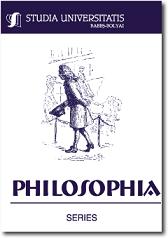HOMMAGE À LA PARESSE ENTRE LA PENSÉE DE L'OUEST ET DE L'EST
HOMAGE TO THE LAZINESS. BETWEEN WESTERN AND EASTERN THINKING
Author(s): Codrina Laura IoniţăSubject(s): Philosophy
Published by: Studia Universitatis Babes-Bolyai
Keywords: inactivity; laziness; hyperactivity; Protestant ethic; contemplation; silence; spiritual dimension.
Summary/Abstract: Homage to the Laziness. Between Western and Eastern Thinking. A close look on the lack of action, inactivity, generally known as laziness, could discover more different meanings, perhaps opposite, of this term. Based largely on a religious conception, for the Western Christian thought, laziness is a negative feature, a sin against the action required by the Protestant ethic as a rule of life to the heavenly kingdom on earth accomplishment. East, however, regards inactivity with a different eye. Also, with a religious background, but sprung from oriental principles of life and world, idleness is seen very differently in the East than in the West. It is often associated to contemplation. Eastern Christianity retains traces of Oriental thought in how to relate to the world, way (fatalistic in terms of the West) for which the excitement, action or will are secondary. Philosophers as M. Vulcănescu (for which American society was suffering from hyperactivity), writers like M. Preda (who believed that active people do not understand anything in life) and artists like Philippe Ramette (who makes a work entitled Eloge à la paresse) understand laziness in its spiritual dimension associated with peace and silence accompanying the final step to overcome the materiality of the world.
Journal: Studia Universitatis Babes-Bolyai - Philosophia
- Issue Year: 58/2013
- Issue No: 1
- Page Range: 25-42
- Page Count: 18
- Language: French

